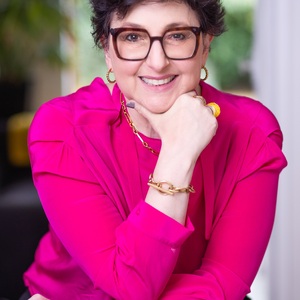You are viewing your 1 free article this month. Login to read more articles.
Flexible benefits
Having released books with major publishers, I’ve fallen in love with smaller ’hybrid’ houses.
I’ve done something I thought was unusual and risky which turns out to be all the rage. Despite having six books with Penguin, Atlantic, Bloomsbury, Kogan Page and Hachette I signed a contract with Whitefox to co-produce and jointly bring my latest book, Working Assumptions: What We Thought We Knew About Work before Covid and Generative AI – and What We Know Now, to market.
The book’s main message is that flexibility has to permeate every corner of working life for it work properly. And guess what? I realised that applied to the way I wanted my books about work and life to be published too.
You might call it self-publishing but to me that sounds rather lonely. Whitefox, which boasts bestsellers and award-winning titles in its list (I’m in their latest crop of books, which includes Rebecca Frayn’s new novel Lost in Ibiza) is as choosy as any of the big trade publishers, and I felt delighted that they picked me to work with.
Really, we picked each other. Normally that luxury is reserved for a handful of six-figure-sum authors, whose books go into a legendary auction. But the rest of us know it isn’t like that. We feel, often, despite the best efforts of the mainstream houses, far more unloved.
Every author I know wants to feel cared for. We want to be involved. All too often the tradition publishing "system" is impersonal, and makes promises it cannot keep and does not keep. Budgets are tight and resource is stretched. Flexible publishers are more transparent. It’s a partnership. They tend to be small and offer a highly personal service and you mutually agree what elements to focus on. I find that invaluable.
We did both an offset litho print run for advance corporate orders linked to speaking engagements (now reprinting), and we also went with print-on-demand with Kindle Direct Publishing and Ingram Spark. Consumer demand was stimulated by a publicity blitz from the non-stop team at FMCM who got Working Assumptions covered by the Financial Times, Times Radio, LBC, the New European, BBC Five Live, GB News, and the Times.
So why did I do this, and why — after six books — now?
Perhaps I was inspired by the 30th anniversary of the publication of Knowledge of Angels by Jill Paton Walsh, a self-published book which made it to the Booker Prize shortlist in 1994 because, despite her success as a children’s author, the book had been turned down by the main publishers. When she died in 2020 all of her obituaries – which ran everywhere from the Guardian to the New York Times – noted that she had been shortlisted for the Man Booker Prize for this novel, which I played a part in because I was her book publicist. I remember writing hand-written notes to all the literary editors to suggest that they overlook the fact that no one had heard of Colt Books and consider sending the book out for review. You can now find a copy retailing online for £60 in Bow Windows Bookshop (“Fine Books and Maps”), which is good going for a novel so long after publication.
The whole experience has given me confidence and boosted my creativity. I’m collaborating with my publishers, not separated from them
Maybe I was also inspired by Keila Shaheen’s sensation Shadow Work Journal, the self-published book which recently became a sensation through TikTok influencer referrals, bringing a unique 50% profit-splitting deal from one of 27 publishers who want to turn her into the "empress of self-help". Over in the US, one of her agents told the New York Times that “it became very obvious that in traditional publishing, we were all well behind what Keila was doing”.
I’ve certainly been inspired by the publication of The Oxford University Asparagus Society, a hilarious, moving, beautifully illustrated memoir of the swinging Sixties experienced through the eyes of two Americans, Jane Birt and her friend Peggy Coats. Jane sent me photos of her "unboxing" of this private limited self-published edition, writing that “We’re gratefully indebted to the miraculous and often infuriating technology that allowed us, through Covid and beyond, to create our graphic memoir virtually side by side.” They have done the whole thing themselves – and both are in their 80s!
And I’ve been inspired by my friend Neroli Lacey. She writes "delicious fiction for clever women" and has been steadily building up an avid audience using newsletters and Facebook advertising before doing a deal with She Writes Press, which will bring out her luxurious and page-turning novel The Perfumer’s Secret next spring.
We all have had our different reasons for going down this route. For some it’s all about creative control. For others it’s about commercial control. Some of us have lived and earned long enough to have the means to front the costs and the time to invest in learning about the tech and marketing to help us sell our books, hoping of course that bookshops will catch up even if they have not been offered the book in the traditional way.
For those who think this model means you don’t get to be at book festivals or on book shelves, think again: this model hasn’t stopped Hatchards from ordering copies for a signing event, or customers of independent bookshop from ordering it online. Perhaps because I’m married to an antiquarian bookseller my house has been a bookshop for years and I don’t mind packing my own boxes of the offset litho edition. I’m very much enjoying checking my own Amazon Kindle Direct account to look up sales and royalties, and blimey — I’ve earned more in the first quarter since publication than with all of my other books combined!
I’m not advocating a one-size-fits-all approach. And I appreciate not every author has the means or experience or even motivation to be entrepreneurial. I fully expect to continue to write books for the big houses. But I also have been bitten by the flexible publishing bug, not least for books like Working Assumption, where speed was of the essence. Only Whitefox could bring such a time-sensitive book to market out in such a fast-changing landscape (we put it together in five months flat). I’ve already begun the next edition, to be published on the fifth anniversary of the pandemic, called The United State of Work.
The whole experience has given me confidence and boosted my creativity. I’m collaborating with my publishers, not separated from them. I love writing and the business of books more, not less.
I write and broadcast about the world of work and how it’s changing. The biggest change can be summed up by the word "flexible". Perhaps that’s true of publishing too.



















